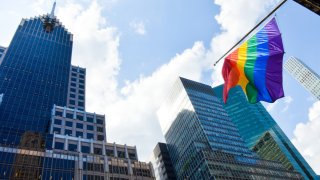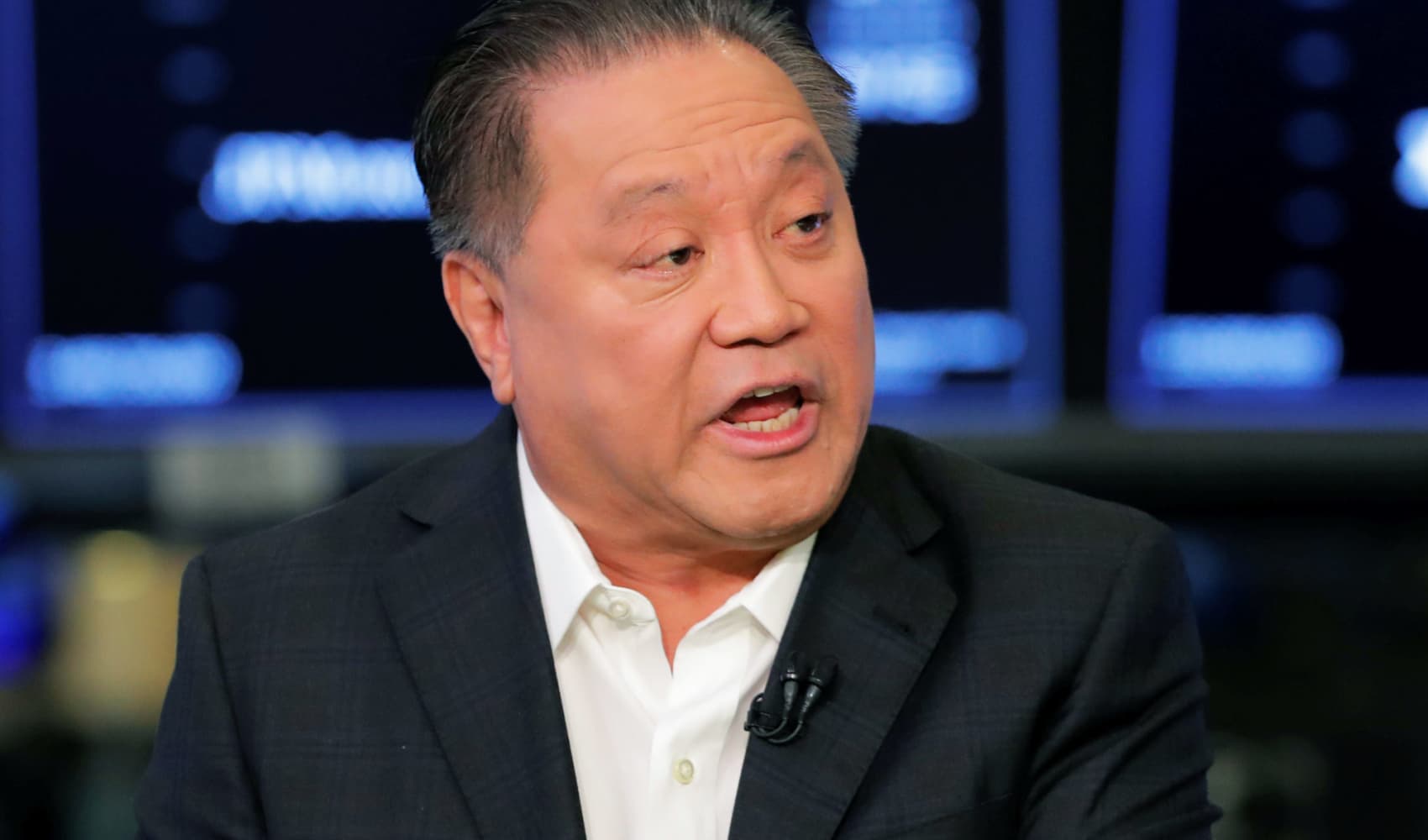
June is LGBTQ Pride month, chosen to commemorate the Stonewall Riots that took place in New York City on June 28th, 1969 in response to police violence against LGBTQ people. One year later, demonstrators organized a march down Christopher Street to celebrate "Gay Pride" — a protest that has evolved into the Pride marches that can today be seen in communities around the world.
The Stonewall Riots were neither the first nor the only time LGBTQ people fought back against police harassment and the fight for LGBTQ rights has happened in workplaces as well. In the United States, some of the most visible milestones in the push for progress have been when workers have fought against discrimination from employers and business owners.
Though progress has been made since 1969, research suggests that workplaces are still failing LGBTQ people — and that temporary Pride month rainbow logos are not enough to support employees.
Discrimination and harassment
It wasn't until last Pride month, June 2020, that the Supreme Court ruled that that U.S. workers cannot be fired for being homosexual or transgender. However, at-will employment still gives employers opportunities to fire employees for nearly any other reason they wish to give except for race, religion, sex or national origin.
We've got the news you need to know to start your day. Sign up for the First & 4Most morning newsletter — delivered to your inbox daily. >Sign up here.
And research suggests that LGBTQ workers often still face discrimination at work.
According to a recent survey of LGBTQ professionals by LinkedIn, 25% of out respondents say they have been intentionally denied career advancement opportunities (such as promotions and raises) because of their identity. A significant 31% of out respondents say they have faced blatant discrimination and microaggressions in the workplace.
The majority of those polled, 54% of managers and 52% of employees, say that their company should offer educational opportunities and bias training.
Money Report
Beyond harassment and discrimination, many LGBTQ workers also report being unsatisfied with how they feel their organization supports — or rather, does not support — the LGBTQ community.
According to an analysis of company reviews by Glassdoor, LGBTQ employees are less satisfied at work compared to their non-LGBTQ counterparts.
"Unfortunately, it's not surprising," says Scott Dobroski, vice president of corporate communications for Glassdoor and a member of the organization's LGBTQ+ employee resource group. "We conducted another survey that shows nearly 50% of LGBTQ+ employees believe being out at work could hurt their career. And more than half of LGBTQ+ employees report they have witnessed or experienced anti-LGBTQ+ comments by coworkers. So when you aggregate the data, the trends and the experiences of LGBTQ+ people, unfortunately, I am not surprised."
"A rainbow logo isn't enough"
Part of this dissatisfaction, Dobroski posits, may also stem from how some companies superficially participate in Pride Month, without engaging in the celebration's radical political legacy — a phenomenon often referred to as "rainbow washing."
"While many companies will turn their logos and social profiles to rainbows for Pride Month, creating a more equitable company is more than just symbolic or superficial moves. It's about action," he says. "A rainbow logo isn't enough."
"Changing logos in solidarity with the community has some benefits to some members in the community because it can show that the entity is standing with them," says Dobroski, noting that Glassdoor has also changed its logo for the month. "Where the problem comes in, is if a company is just changing its logos, or even making some sort of public statement that says 'I stand in solidarity with this group,' but is not taking the appropriate action inside their walls to support it."
Kayla Gore is the executive director of My Sistah's House, a Memphis-based organization founded to help bridge a gap in services for trans and queer people of color with an emphasis on housing. She says that often the issue of corporate participation in Pride Month boils down to standing up for LGBTQ workers outside of the office and "not trying to just capitalize off of people's lived experiences of being proud".
"There's been so many opportunities over just the last couple of months for major corporations to actually take a stand against the 'Slate of Hate' that is happening all over the South, when it relates to anti-trans legislation," she says. "There have been many opportunities for major corporations to say, 'Hey, this is how we feel and we can affect a lot of things that happen in your state financially if you're not affirming of trans people and if you don't stop the unjust treatment and cruelty that you're imposing, especially on trans youth,' instead of using us as marketing strategies throughout the month of June."
She stresses that to truly support LGBTQ+ workers, organizations should stand up for LGBTQ rights inside and outside of the office 365 days a year.
"There are other months in the year that people can show up."
Don't miss:






